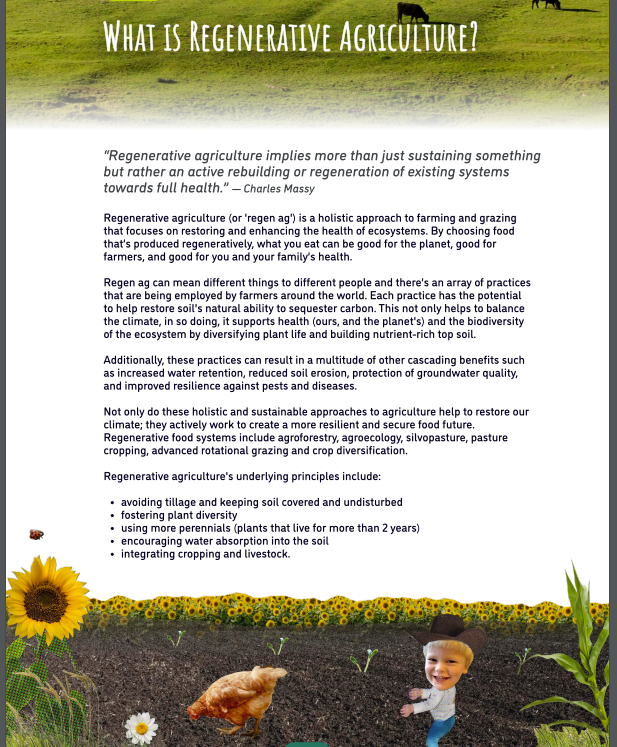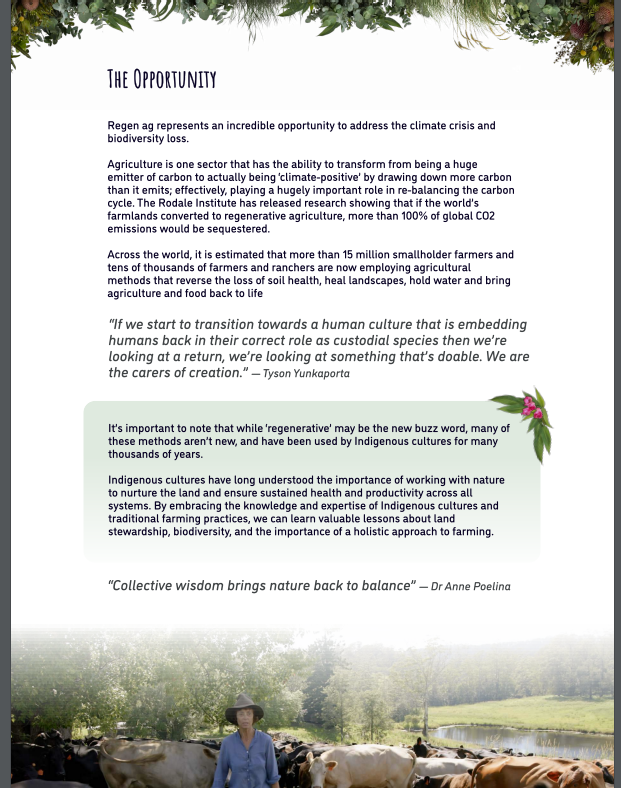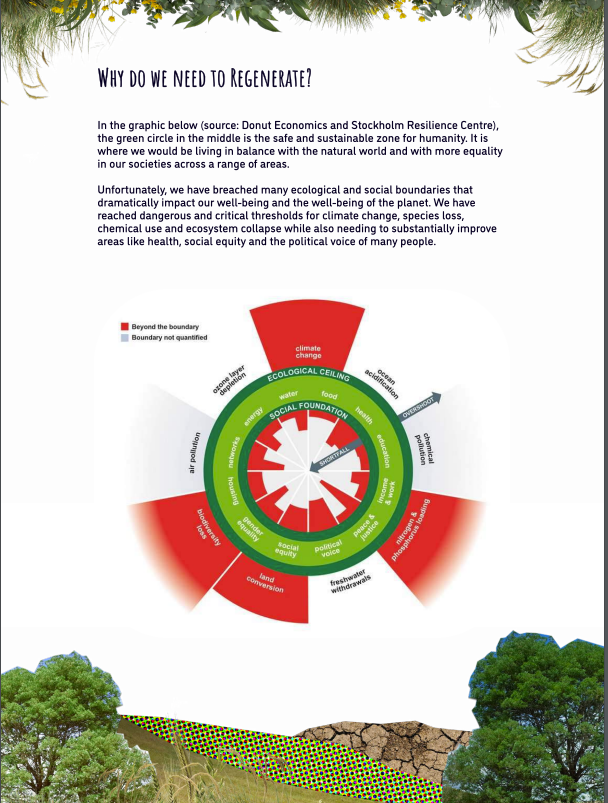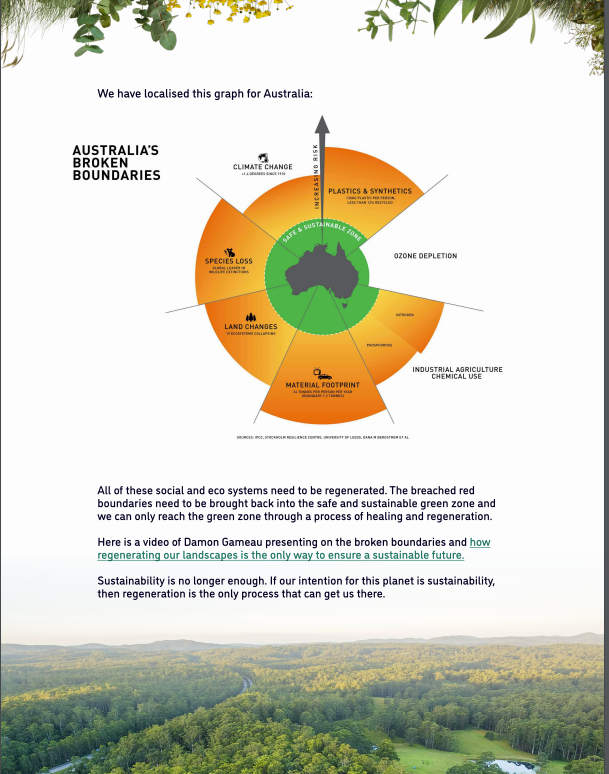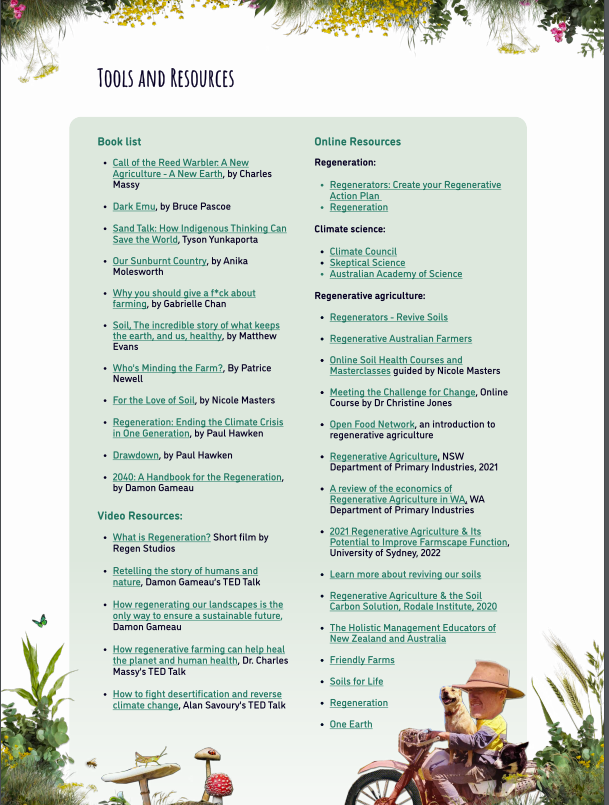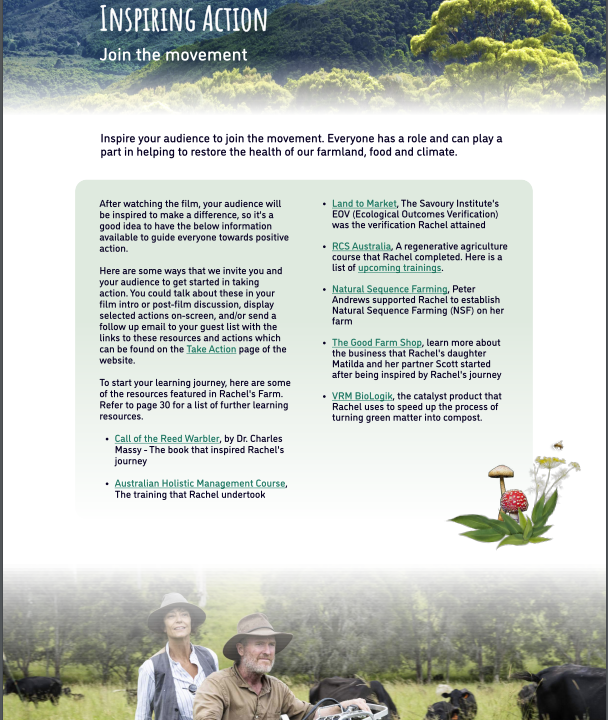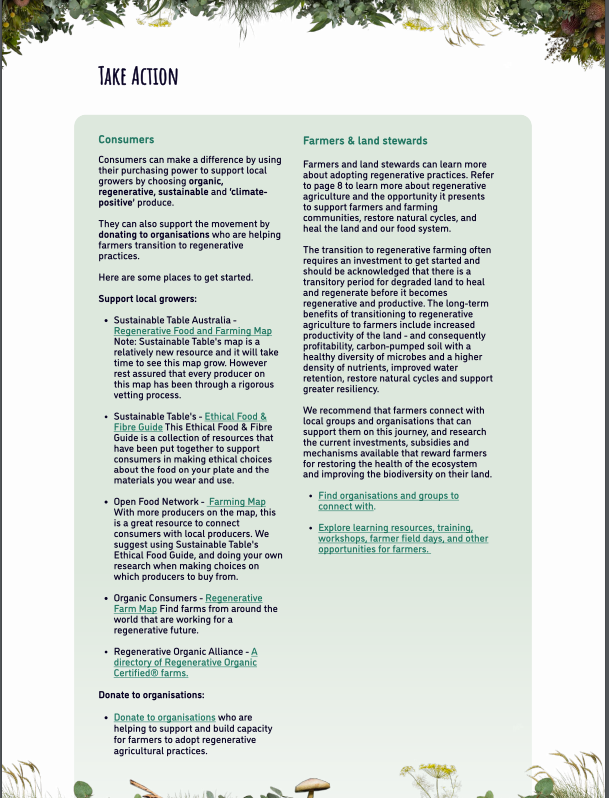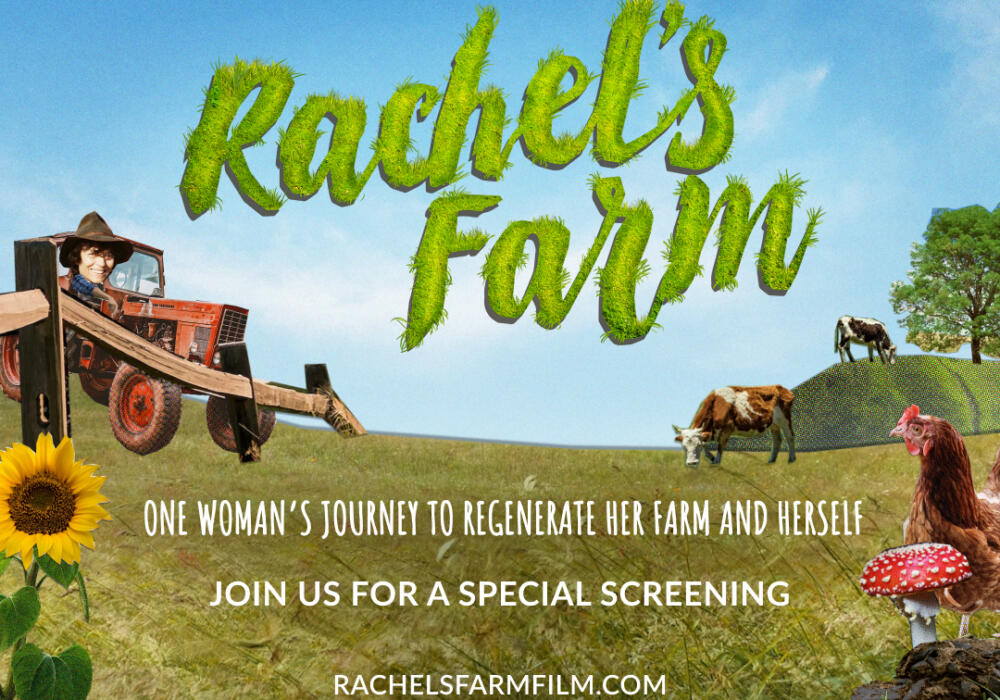So, what is regenerative agriculture all about?
The following information and views has been provided to Otway Harvest Trail from Regen Studios to further follow the ideas presented in the film – “Rachel’s Farm”.
INTRODUCTION
In the film Rachel is introduced to the concept of regenerative agriculture (or ‘regen ag’) by her neighbour, Mick, who is challenging the conventional ways his father has farmed. Through Mick and other regen experts Rachel learns about the importance of healthy soil, how to better manage water, rotating livestock to foster healthy paddocks, and the importance of supporting biodiversity and planting native plants. And by doing all this she is making her farm more sustainable, and more profitable.
“It doesn’t have to be the way we’ve got caught doing things. We can make a profit and we can do it right. The more people that farm this way, the more we’re going to heal our landscapes. So, I feel incredibly hopeful.” — Rachel Ward
DEFINITION
Regenerative agriculture is an approach to farming and land management that focuses on restoring and enhancing the health of the ecosystem while promoting sustainable agricultural practices.
Regen ag can mean different things to different people and there’s an array of regen farming practices that are being employed by farmers around the world. Each practice has the potential to help restore the soil’s natural ability to sequester carbon.
The goal of regenerative agriculture is to improve soil health, biodiversity, and ecosystem resilience, while also aiming to mitigate climate change and foster sustainable food production.
“Regeneration means putting LIFE at the centre of every action and decision.” — Paul Hawken
The SIX pillars of regenerative agriculture are:
- Soil health: Practices that promote the development of healthy soil through techniques such as cover cropping, reduced tillage, composting, eradicating or
reducing use of chemicals, and agroforestry. - Biodiversity: Encouraging a diverse range of plant and animal species within the agricultural system to support a more robust and resilient ecosystem.
- Water conservation and management: Employing strategies to conserve water resources and prevent soil erosion, such as rainwater harvesting and contour farming.
- Waste reduction and recycling: Minimising waste and recycling organic materials to improve nutrient cycling within the system.
- Integration of livestock and crops: Combining livestock and crop production in a mutually beneficial manner, such as rotational grazing and using animal manure as natural fertiliser.
- Community and economic resilience: Supporting local communities, promoting fair labour practices, and fostering economic viability for farmers.
PHILOSOPHY
Small actions have big consequences.
Regenerative agriculture is based on a holistic system of farming that nurtures a harmonious relationship between agricultural activities and the natural environment, with the understanding that a healthy ecosystem will ultimately lead to more sustainable, resilient and abundant food production. It is an invitation to rethink our place in the world and to embrace a more holistic and sustainable way of living.
While ‘regenerative’ may be the new buzz word, many of these methods aren’t new, and have been used by Indigenous cultures for many thousands of years. Indigenous cultures have long understood the importance of working with nature to nurture the land and ensure sustained health and productivity across all systems.
FURTHER INFORMATION
Regenerators
A collection of resources for Farmers
Regeneration International
Regeneration International (RI): A global nonprofit organisation promoting regenerative agriculture, RI offers valuable information, resources, and articles on regenerative farming practices. Regeneration International
Farmers for Climate Action
Farmers for Climate Action Farmers grew out of a meeting of frustrated farmers in the Blue Mountains in 2015 and now represents more than 6000 farmers across Australia. Their mission is to influence Australia to adopt strong economy-wide climate policies and realise a prosperous and sustainable future, full of opportunity for farmers and farming communities. Farmers for Climate Action
The Savory Institute
Founded by Allan Savory, the Savory Institute promotes the holistic management framework, which emphasizes regenerative grazing practices to restore soil health, increase biodiversity, and combat desertification. They work with farmers and ranchers worldwide to implement these practices. The Savory Institute
For a list of further learning resources, please click here.
